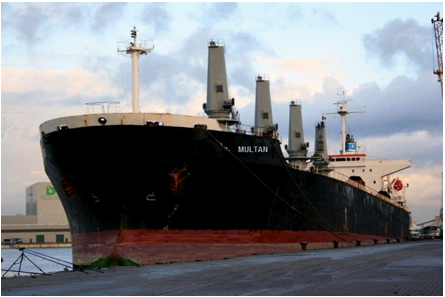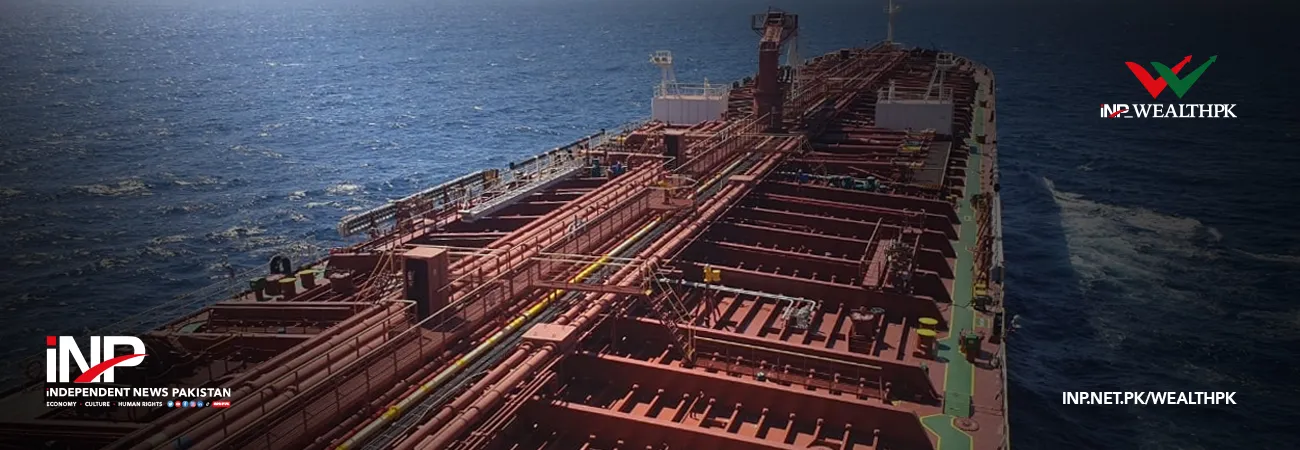INP-WealthPk
Ahmed Khan Malik
The Pakistan National Shipping Corporation (PNSC) has seen a drop in its share in total seaborne trade of the country in FY24, reports WealthPK.

Having a total Deadweight Tonnage (DWT) capacity of 938,876 metric tons, the Corporation lifted a cargo of about 9.94 million tons in FY24 as against 10.83 million tons in FY23, which is equivalent to about 10.31 percent in the year under review compared to 13.06 percent in FY23 of a total of 96.37 million tons, which was 82.95 million tons of seaborne trade by volume in FY23, the performance report of the company showed. The report said despite the PNSC’s advantage resulting from the Ukraine-Russia conflict and Red Sea crisis, the shipping industry inherently faces several risks due to the deteriorated geopolitical situation in the world. The Corporation faced an intense competition in the dry and wet markets, along with excess capacity, subdued freight rates and major regulatory changes in shipping in terms of transitioning towards cleaner fuel as major commercial threats. Their earnings are directly tied to the global market fluctuations.

Furthermore, the PNSC faces uncertainties due to factors like oversupply in bulk segments, volatile oil and bunker prices, rising operational costs, evolving industry norms, and potential disruptions in foreign payments. The PNSC officials told WealthPK that along with all shipping companies, the Corporation faces the ever-present risk of major accidents or oil spills. These events can have devastating consequences for the environment, local communities, and the company’s reputation. “To mitigate these risks, the PNSC takes a host of steps like rigorous crew training, implement strict safety protocols, and maintain its fleet to the highest standards,” Zeeshan Siddiqui, the PNSC director said. He said regular maintenance and inspections can help prevent equipment failures, while spill response plans and emergency procedures ensure a swift and effective response in case of an incident.
He said the Group’s dry cargo segment experienced a significant decline this year by 48% primarily due to the fact that the average charter rates decreased by 39% and operational days decreased by 15% owing to the incidents, as stated earlier, and due to decrease in the slot charter by 33% owing to lesser government consignments. He noted that the major factors contributing towards fleet expenses were increase in depreciation costs from capitalizing drydocking expenses, significant increase in repair and maintenance costs and stores & spares consumed owing to extensive repair and maintenance required for the ageing fleet and revision in salary slabs and linking of Afloat officers and staff salaries to USD, aligning with global standards, resulting in increased salary expenses.
Fluctuations in the exchange rates have further exacerbated the USD based costs. However, he pointed out that the PNSC successfully repaid a Rs10.5 billion long-term loan in September 2023, despite the challenging environment of high KIBOR rates as a part of effective and efficient financial management, resulting in lower finance costs. The Group recorded exchange loss amounting to Rs188 million as compared to extraordinary exchange gain amounting to Rs3,039 million last year. Further, in the corresponding period last year, the Group made a gain on disposal of MT Karachi amounting to Rs3,337 million. However, the Group achieved Rs7,032 million on short-term investment.
Credit: INP-WealthPk













